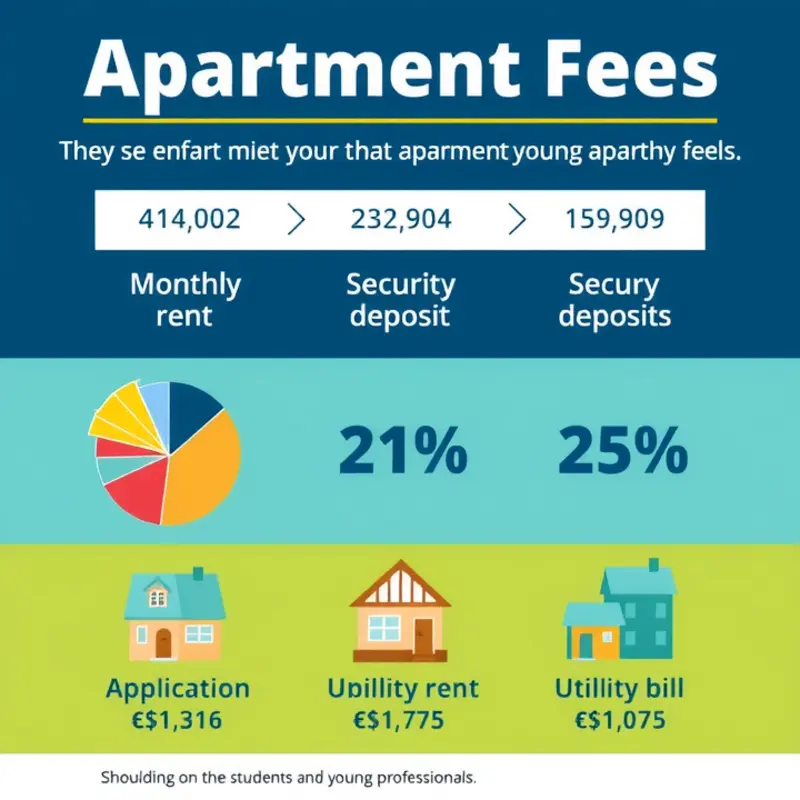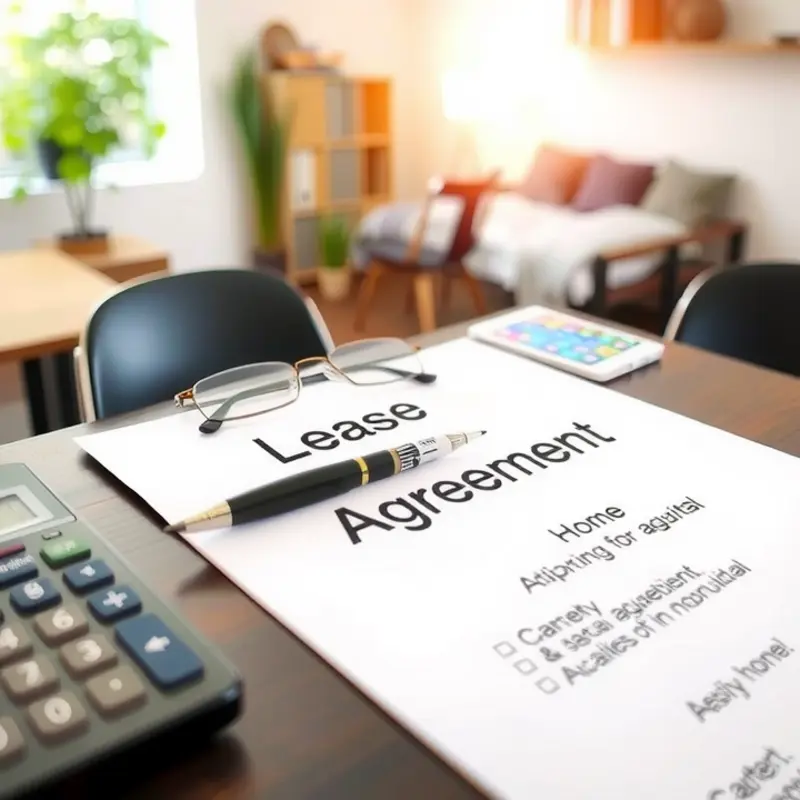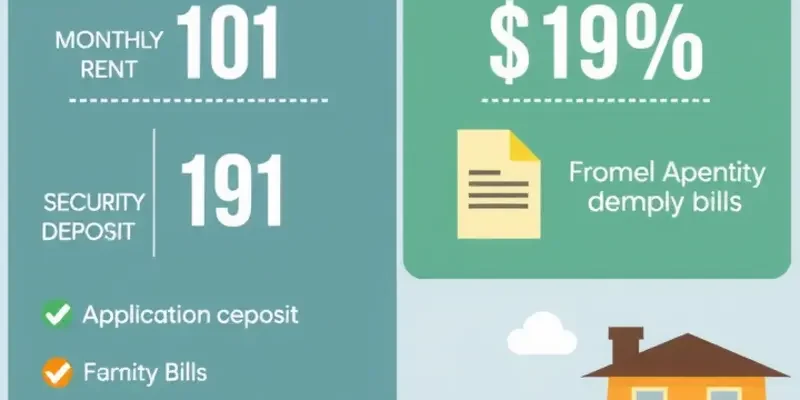Renting an apartment for the first time can be a thrilling yet overwhelming experience, especially with numerous fees that come into play. Often, young professionals, students, couples, and families find themselves puzzled by the various charges that accompany their monthly rent. From the application fee to security deposits, understanding these costs is crucial for managing your budget effectively. This guide aims to demystify the apartment rental fees and provide practical advice to help you assess affordability and make informed decisions. By clarifying what each fee entails and how they fit into your overall financial picture, you can embark on your renting journey with confidence. Whether you are exploring options for a cozy studio or a family-friendly unit, getting a handle on apartment fees will empower you to find a space that meets your needs without stretching your budget.
Breaking Down Apartment Fees

Navigating the array of apartment fees can be daunting, especially for first-time renters. Understanding these costs is crucial in setting realistic expectations and successfully managing your rental budget. Here’s a detailed breakdown of common fees you might encounter.
Application Fees: These are non-refundable fees paid when you apply for an apartment. They cover the cost of processing your application, running background and credit checks, and sometimes contacting references. The amount can vary significantly based on location and property complexity. For example, an application fee might range from $25 to $75.
Security Deposits: This deposit acts as a financial safety net for the landlord. It often equals one month’s rent and is refundable at lease end, provided there’s no damage to the property beyond normal wear and tear. If your rent is $1,000 a month, anticipate a similar amount as your security deposit. To understand more about the financial implications, check out this article on budgeting templates.
Pet Fees and Deposits: If you have a pet, expect additional fees or deposits. A pet fee is usually non-refundable and may be a flat one-time payment or added monthly to your rent. Pet deposits, on the other hand, are refundable like a security deposit if no pet-related damage occurs. The total cost can range from $100 to $500 or more, depending on the property’s pet policy.
First and Last Month’s Rent: Many landlords require both the first and last month’s rent upfront to secure the lease. For instance, if you rent an apartment for $1,200 monthly, you’d need to pay $2,400 when signing the lease. This requirement ensures you fulfill lease terms or that there’s financial coverage in case you leave early.
Move-In Fees: These fees are more common in cities and are non-refundable charges that cover expenses related to preparing the apartment for a new tenant. Move-in fees tend to be lower than security deposits, typically $100 to $400.
Utility Fees: Depending on the lease agreement, you may be responsible for utilities such as water, gas, electricity, and trash. Confirm these details before signing. Occasionally, landlords bundle all utilities into rent, making budgeting simpler but potentially more expensive month-over-month.
Understanding these fees can help you be better prepared. Always clarify with your potential landlord what each fee covers and any conditions for refunds. Learning these aspects ensures you have a clear financial map, making the overall renting experience smoother and more predictable.
Tips for Navigating Lease Agreements

Navigating a lease agreement as a first-time renter can feel overwhelming. Understanding the fees outlined in your lease is essential to avoid unexpected costs. Here, we’ll break down key components of a lease and offer tips on negotiating terms to ensure the best possible rental experience.
Rent and Security Deposit: These are usually the first fees you’ll encounter. Rent is the monthly amount you agree to pay, and the security deposit is typically a one-time payment held by the landlord for the duration of the lease. Ensure your lease clearly states the total rent, payment due dates, any penalties for late payment, and conditions for the return of the security deposit.
Application and Administration Fees: These fees cover the cost of processing your rental application. Although often non-negotiable, you can try negotiating these costs if you have an impeccable rental or credit history. Make sure these fees are itemized in your lease.
Maintenance and Repair Fees: Some leases may include a clause that makes tenants responsible for minor repairs. Clarify the specifics—what qualifies as ‘minor’? Ensure that all maintenance responsibilities and associated costs are clearly documented. Negotiating this clause might save you from unexpected expenses.
Utility Costs: Depending on your lease, you may be responsible for certain utilities. Verify whether utilities such as water, electricity, gas, and internet are included. If not, request a ballpark estimate of these costs from the landlord or previous tenants. This helps you budget appropriately and may provide leverage to negotiate for other inclusions.
Renewal Terms: A lease should outline the conditions and timeframe for renewal. Knowing this helps you plan ahead and can be a negotiating point. If you intend to stay beyond your initial lease term, ask for a clause providing a renewal rate cap.
Strategies for Negotiating Lease Terms:
- Research Comparable Rentals: Understanding the market rates gives you leverage to negotiate rent or other fees.
- Highlight Your Strengths: If you have a strong credit score or stable income, use it as a bargaining tool.
- Request Amendments: Don’t hesitate to ask for adjustments to unclear terms.
- Negotiate Fees by Bundling: If the landlord is resistant to lowering rent, consider asking for waived or reduced fees in other areas such as parking or gym access.
Understanding these aspects can prevent costly surprises. Remember, your lease is a legally binding document. It’s crucial to review each clause carefully. If any terms are unclear, seek clarification before signing.
For more detailed budgeting strategies as a renter, consider visiting this guide to refine your budgeting skills and manage your expenses effectively.
Final words
Grasping the array of costs associated with renting can solidify your financial readiness and empower you as a tenant. By identifying key fees and understanding how they mesh into your lease agreement, you can move forward with confidence, whether opting for a downtown studio or a family-sized apartment. Always take your time to ask questions and clarify any uncertainties with your landlord or property manager. Renting should be an enjoyable step towards independence, not a financial burden that surprises you later. With the right knowledge, you can find a home that suits your lifestyle while staying within your budget.









